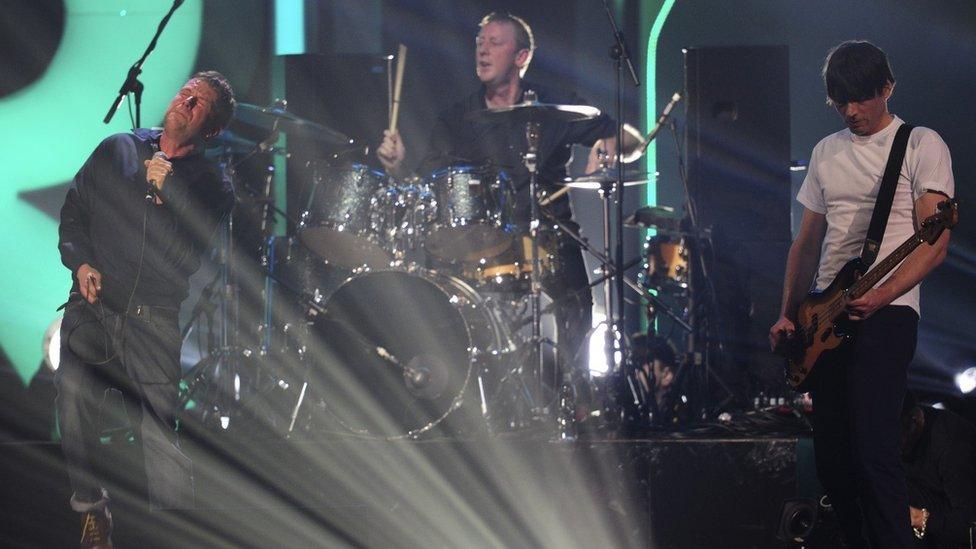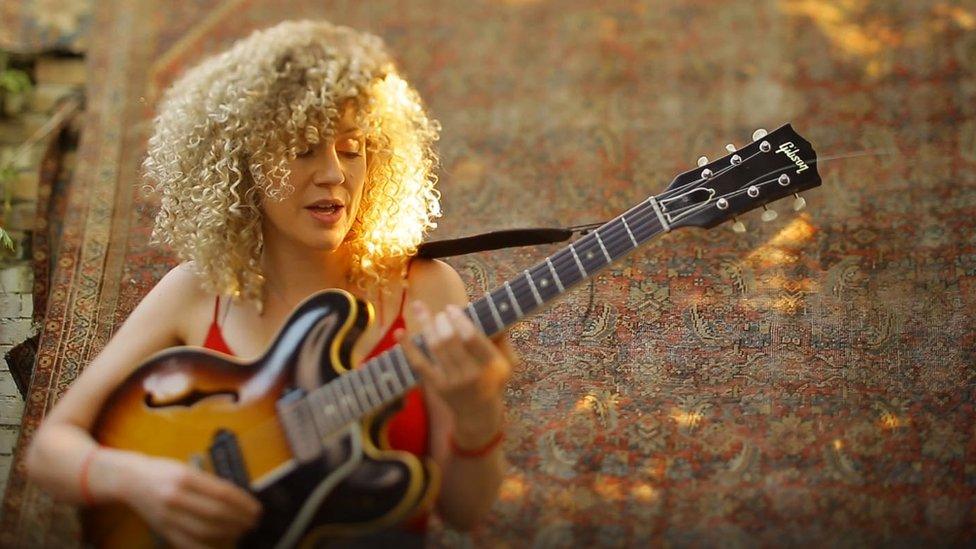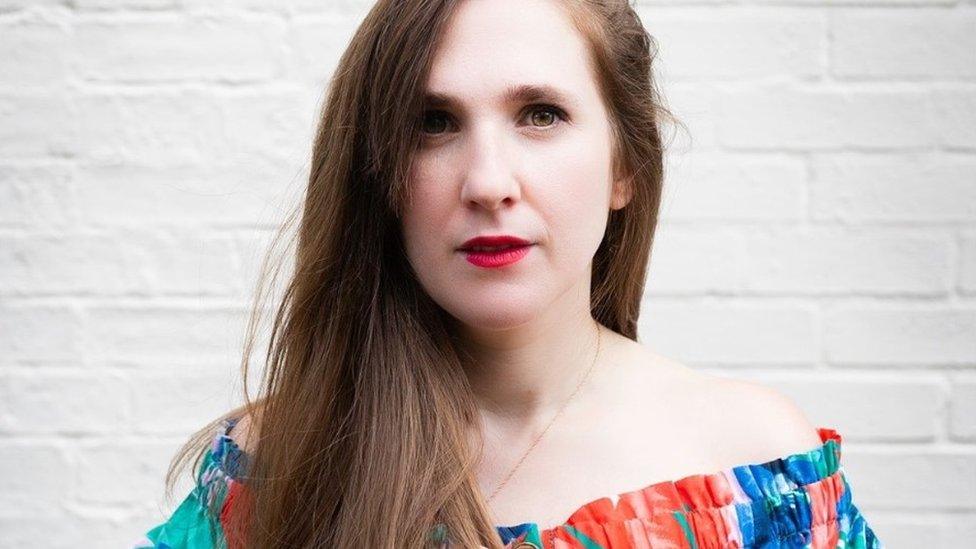Blur drummer David Rowntree: 'Music streaming hits songwriters and artists'
- Published

David Rowntree has been the drummer with Blur since the band's formation in 1988
Blur drummer David Rowntree has warned unfair music streaming payments to songwriters and artists could be "terminal" for the industry.
Rowntree - now a councillor in Norfolk - spoke to the BBC as a House of Commons committee examined the issue.
Songwriter Fiona Bevan, of Suffolk, told the committee she had earned just £100 for co-writing a track which was on a Kylie Minogue number one album.
But record firms argue they deserve the large share as they develop artists.
The House of Commons Digital, Culture, Media and Sport Committee, external has so far heard from performers such as Bevan, Nile Rodgers and Nadine Shah.
They have also heard from the heads of the UK's "big three" major labels - Sony Music, Warner Music and Universal Music - who told MPs their cut was a fair reward for the risks involved in developing artists, recording, marketing and distribution.
'Next generation hit'
Rowntree, a Norfolk County councillor, said: "I was disappointed to see the labels [before the committee] yet again dig their head in the sand, plucking numbers out of the air and saying all the artists are happy."
He told BBC Politics East performers and songwriters "make all this stuff and we are last in the chain when it comes to remuneration".
"If something isn't done about it, that is terminal for the music industry," he said.
"Bands like mine will be fine, but the next generation of bands will be hit - bands living hand-to-mouth like we did for the first 10 years."

Fiona Bevan's song Unstoppable, co-written with Minogue and Troy Miller, was on Kylie's 2020 album Disco.
Singer-songwriter Bevan, from Sudbury, who co-wrote with Ed Sheeran the One Direction number one Little Things, told BBC Politics East many writers are struggling because of the way streaming services pay royalties.
She said typically out of every £1 spent on streaming services, 30p goes to the streamer (such as Spotify or Amazon), 55p goes to the record company and 15p goes to the publisher, which is then distributed to the artist and songwriters.
"If you get one million streams with a three-way split - with songwriter, artist and a producer, you're probably looking at £100 for the songwriter," she said.
"If a songwriter had to get a train down for a day of songwriting you're not looking at viable living wage. I know hit songwriters who are now driving for Uber or working for Amazon.
"People are going to leave the industry in droves. My biggest fear is the new wave of talented songwriters that should be coming up are simply going to go into another industry because it is impossible to survive."

Annie Dressner is a singer-songwriter based in Cambridge
Annie Dressner, a singer-songwriter based in Cambridge, said: "I think Spotify, for example, is an excellent way to discover music as a listener and have music discovered as a musician.
"Clearly artists want to be paid more for their work on streaming platforms... It is increasingly hard to make money doing music, which has been made even more apparent this year without touring."
Tony Harlow, chief executive of Warner Music UK, told the committee that the economics of streaming were currently "working their way through", and cautioned against disrupting the system.
He added: "This is an evolving situation. It is being well-governed by a market that is efficient and nimble and it doesn't need any change."
The BBC contacted Spotify and Amazon Music but they have yet to respond.
Politics East airs on BBC One in the East on Sunday 7 February at 10:00 GMT and can be viewed on the BBC iPlayer afterwards.